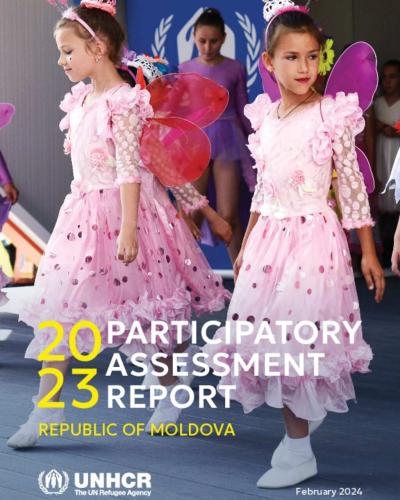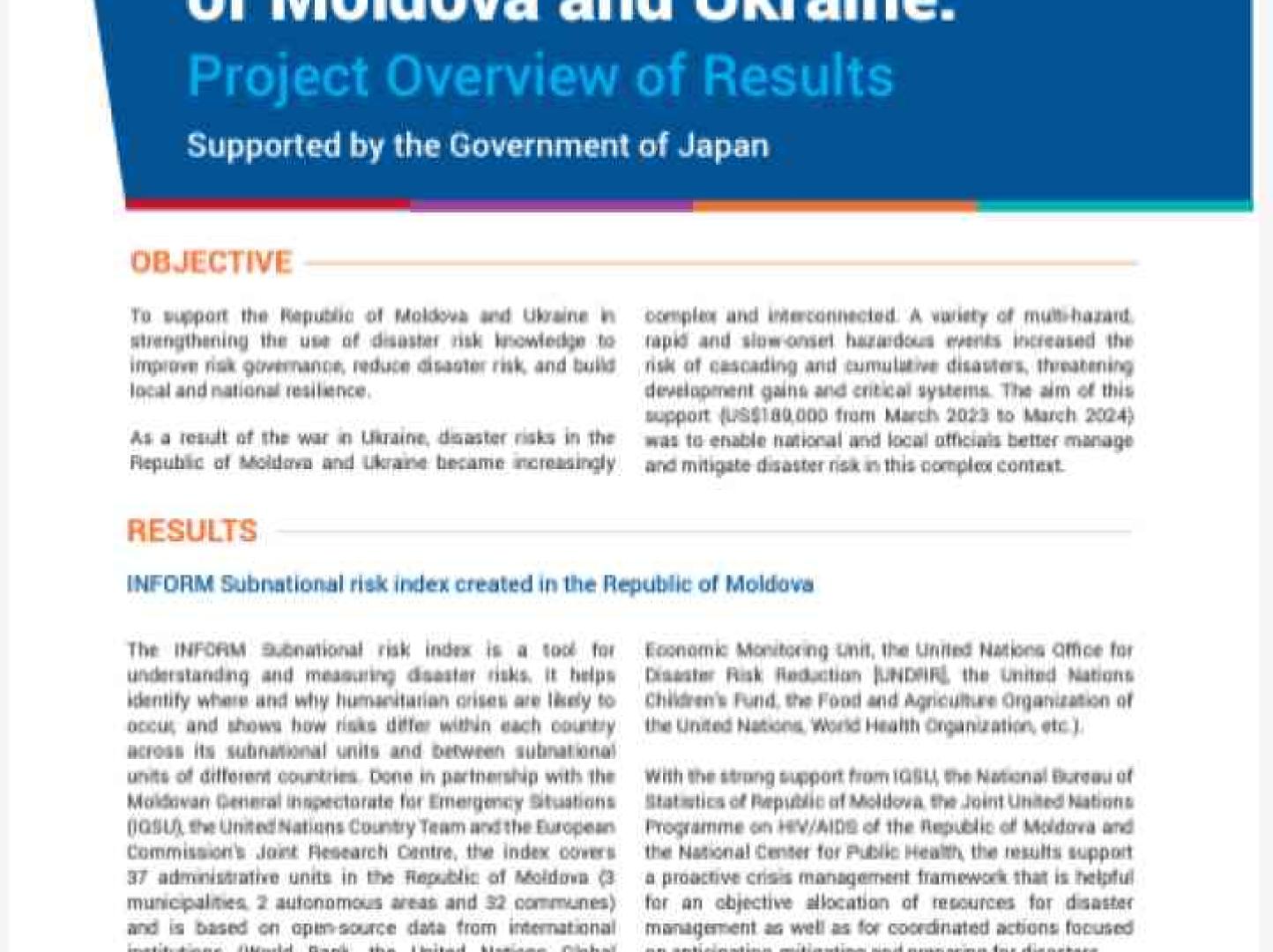Ukraine Situation - Moldova: Moldova Participatory Assessment Report 2023

Participatory assessments play a crucial role in amplifying the voices of refugee women, children, and adolescents from diverse backgrounds, facilitating their direct engagement with decision-makers and fostering community involvement in their protection.
Key findings in the Republic of Moldova
The findings highlight a strong correlation between the legal status of displaced persons in the Republic of Moldova and their prospects for integration and inclusion within the local communities. Those coming from Ukraine who received temporary protection status, for example, demonstrated a higher level of inclusion within their communities and greater access to services provided by the state as compared to asylum-seekers. This applied to access to healthcare and education services, as well as access to the labour market.
Access to health care remained foremost among the refugee concerns. Availability, cost and quality of health care services were all noted as difficulties in Moldova, not only by Ukrainian refugees but also asylum-seekers of different nationalities. Language barriers, access to childcare, skills mismatches, and low salaries, continued to be cited as impediments to obtaining employment. Despite these obstacles, however, as compared to 2022, more PA participants, from diverse ages and backgrounds, stated that they had been able to find jobs in Moldova or were in the process of doing so.
Access to affordable and adequate housing and accommodation was also voiced as an increasing problem by participants from various profiles.











